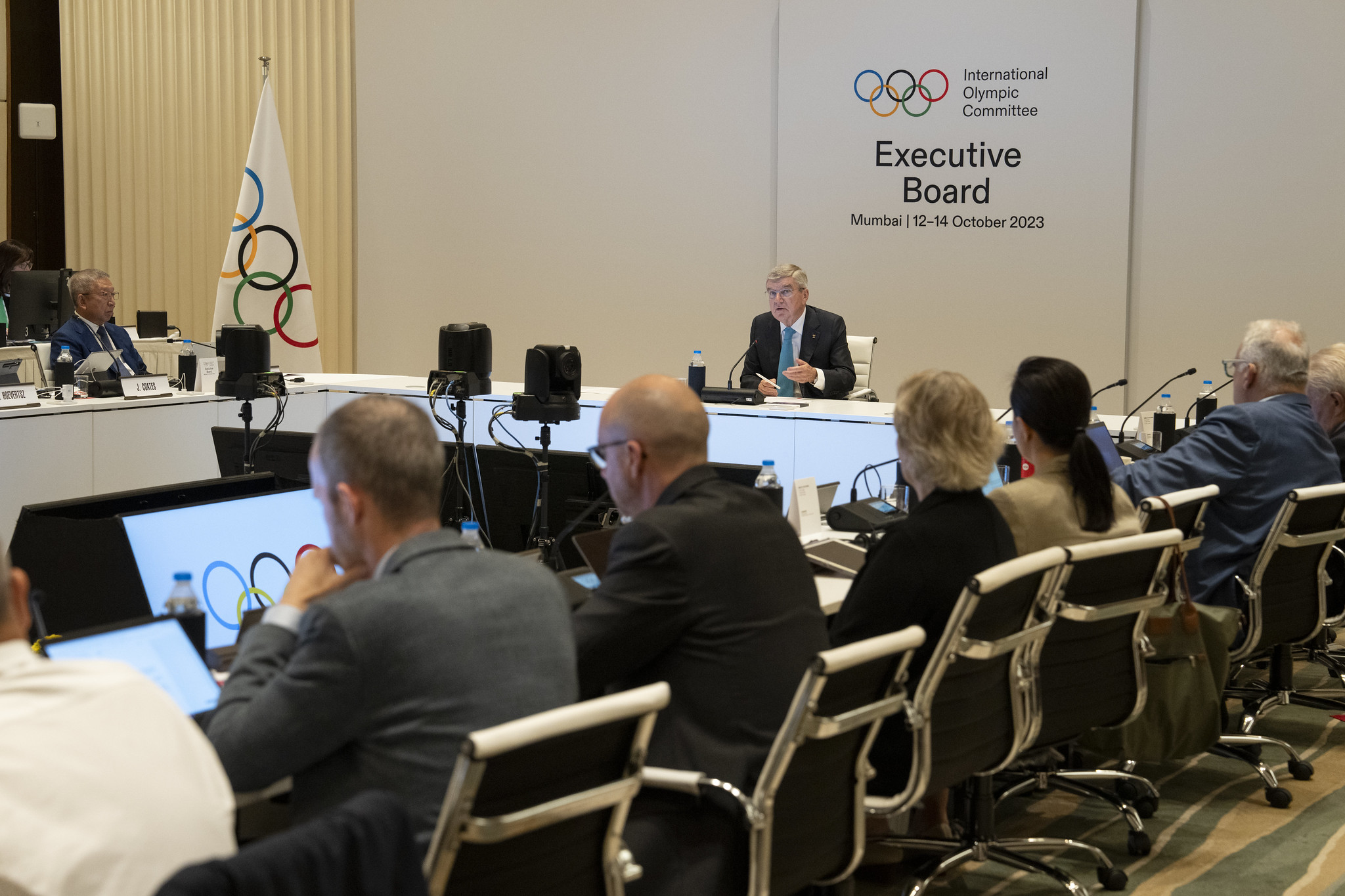
The International Olympic Committee has suspended the Russian Olympic Committee for breaching the Olympic Charter by incorporating sports bodies in four regions in eastern Ukraine. But IOC Spokesman Mark Adams said the suspension does not yet affect the possibility of neutral Russian athletes competing at next year’s Olympic Summer Games in Paris.
The Russian Olympic Committee included sports councils in Donetsk, Kherson, Luhansk and Zaporizhzhia as its members on October 5 even as those councils are under the authority of Ukraine’s National Olympic Committee, the IOC said Thursday after the first day of executive board meetings at the IOC Session in Mumbai.
The ROC will no longer be allowed to operate as a National Olympic Committee and cannot receive any funding from the Olympic movement as part of its sanctions — a move that had not been made by the IOC in the 20 months since Russia invaded Ukraine.
The IOC’s stance toward Russia since its invasion of the Ukraine has taken more twists than a gymnast in midair. The IOC urged international sports bodies last year to block and isolate athletes, officials and host cities from Russia and Belarus within days of the invasion starting. Since the IOC began softening its stance, criticism of its position has clearly wounded IOC President Thomas Bach, who in February of this year shot back that “history will show who is doing more for peace” even as international support for Ukraine has not waned and Ukraine President Volodymyr Zelenskyy has been consistent in his position about Russia’s place in world sport since the invasion began.
But as the Olympics in Paris draw near, the IOC has pushed those same sports bodies to try to let Russians and Belarusians evaluated as neutral individuals to compete in qualifying events. Gymnasts from Russia and Belarus will be allowed to take part in sanctioned competitions as “individual neutral athletes” from the start of 2024 even as Russian gymnasts have been some of the most vocal supporters of the war. World Aquatics mandates no national symbols, plain white uniforms, and only one Russian and one Belarusian “neutral” athlete per event. That means no relays, no synchronized diving or water polo, and none of the artistic swimming duets and teams which have brought Russia a string of Olympic gold medals.
At the same time, other federations have stayed firm against allowing Russian and Belarussians to compete. World Athletics’ ban remains in place “for the foreseeable future,” after a vote of the World Athletics council in March. The IOC still backs excluding Russia from team sports and no Olympic sport has yet defied that regulation. In some events, like men’s basketball and soccer, Russia has already missed its last chance to qualify.
While headline-making given the circumstances involving the IOC’s still-undetermined policy on allowing Russian athletes to compete in Paris, the suspension or threat of suspension is not abnormal. The current Session was scheduled to be May 2023 but delayed because the IOC threatened to suspend the Indian Olympic Committee in the fall of 2022. Three months after the delay was announced, India was back in the IOC’s good graces and even has floated the idea of bidding to host the 2036 Summer Olympic and Paralympic Games, which Bach has not discouraged.
Whether the ROC’s recent moves will change the IOC’s stance on individual athletes may become more clear on Friday, when Bach is scheduled to meet with world press representatives after the second day of executive board meetings that will also include discussion on the LA28 sports program.











 Copyright © 2025 by Northstar Travel Media LLC. All Rights Reserved. 301 Route 17 N, Suite 1150, Rutherford, NJ 07070 USA | Telephone: (201) 902-2000
Copyright © 2025 by Northstar Travel Media LLC. All Rights Reserved. 301 Route 17 N, Suite 1150, Rutherford, NJ 07070 USA | Telephone: (201) 902-2000